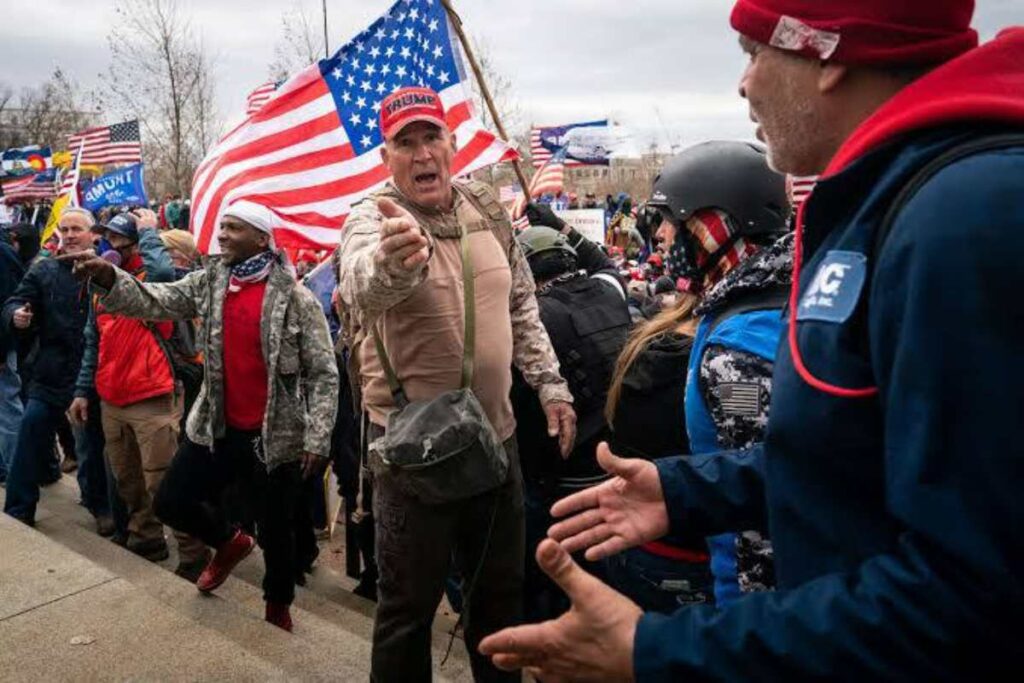Several January 6 rioters have won early release from their sentences before a key Supreme Court ruling. Federal judges began ordering the early release of the rioters who challenged their sentences pending the hearing on the legality of a specific federal charge against them.

However, the review could, in turn, see them ordered to return to prison. A Delaware man who carried a Confederate flag into the Capitol will be free one year into his three-year term. Also, an Ohio man who overran police lines will become free six months into a 19-month term.
A federal Judge has also released a rioter who entered the Senate chamber with a Trump flag as a cape. They released him after serving five months of a 14-month term. However, if the Supreme Court ultimately determines their charges were legitimate, they could be ordered to return to prison.
The early releases are the latest complications in the prosecution of more than 350 January 6 defendants. Their charges stem from a federal statute that makes it a crime to obstruct or impede an official proceeding. In this case, they tried obstructing Congress’s joint session to confirm Joe Biden’s 2020 presidential victory.
In December, the Supreme Court agreed to hear a consolidated challenge by three defendants whose lawyers condemned the law. Citing a previous case, they argued that the law is limited to destroying evidence in governmental investigations.
Fourteen of fifteen trial judges upheld prosecutors’ use of the law to charge rioters who obstructed Congress’s election certification vote. However, one judge in the U.S. District Court in Washington, Trump-appointed Judge Carl J. Nichols, disagreed. He ruled the law applied only to tampering or destroying evidence such as records or documents.
POLL—Should the Government Increase Taxes on the Wealthy To Reduce Economic Inequality?
If the Supreme Court decides that the obstruction charge was unsuitable for the January 6 rioters, it would have a ripple effect. The decision could affect the election interference case against Donald Trump. The Supreme Court will hear oral arguments in the case next Tuesday.
However, it would issue its ruling by the end of the term in late June or early July. A reversal would not affect most January 6 riot defendants charged with disorderly conduct at the Capitol. However, it could wreak havoc in cases where obstructing election certification is the only felony charge the defendant faces.
ALSO READ: Federal Judge Suggests Trump Might Incite Another Riot Like January 6
According to court documents, about half of 120 sentenced cases fall in that category. As a result, prosecutors have urged judges to delay releasing the men charged under the contested obstruction law pending the Supreme Court appeal. They argued that doing so would release them into the same political climes of the 2020 election.
However, Judge Trevor N. McFadden rejected the idea in an 11-page opinion that ordered the release of the defendants. He said it’s wrong to propose not releasing the January 6 defendants during an election year. McFadden said if there are concerns that the rioters will engage in criminal conduct, the government’s options remain open.
However, he noted that without those facts, “the Court cannot deprive a citizen of his liberty based on guesswork alone.”
You Might Also Like:
Florida Woman Bags Jail Term for Selling Biden’s Daughter’s Diary
Judge Sentences Parents of Michigan School Shooter Ethan Crumbley to 10-15 Years in Prison
Democrat Who Demanded Justice After Subway Chokehold Death Blasted for Calling Out NYC Crimes
Zelensky Says Ukraine “Will Lose the War” if US Fails To Approve Aid
Officials Arrest Suspect in Arson at Sen. Bernie Sanders’ Office
